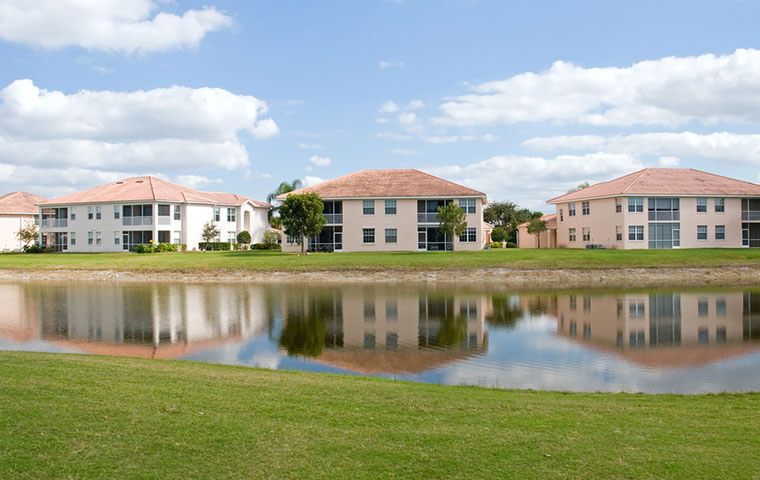 What state are the roofs in? If maintenance has lagged, you may be hit by a large assessment right after you move in. Image: Chad McDermott/Shutterstock.com
By: FEDweek Staff
What state are the roofs in? If maintenance has lagged, you may be hit by a large assessment right after you move in. Image: Chad McDermott/Shutterstock.com
By: FEDweek StaffWhile many people prefer to stay where they are after retiring, some choose to move into retirement communities, where they will have fewer chores and access to services and activities they desire.
If this sort of retirement appeals to you, start looking as soon as possible. If you wait until you’re sick or injured, you won’t be in a position to do careful screening. The best communities have lengthy waiting lists, so it’s vital to begin your search, pick the one that you favor, and submit your application.
Before you make any commitments, be sure you know all the terms of the contract. What extra charges will you incur if you need nursing care? Are the facilities adequate? What medical personnel will be available?
Choosing a retirement community involves a tremendous amount of work. If you think you might be interested in a continuing care community in a few years, begin looking while you still have time to evaluate different places carefully.
Before you buy a new home, find out if it’s subject to rules set by a homeowners association. Such rules not only can limit your activities (preventing you from cutting down trees, for example), they can impose special assessments and raise monthly fees.
Walk around the neighborhood and ask current homeowners if they’ve had problems with the association.
Examine the association’s financial statements to see if there have been special assessments.
Check to see if money has been spent on street repairs and other infrastructure components. If maintenance has lagged, you may be hit by a huge assessment in the near future.
Visit the local courthouse to see how often the association has sued residents. You may not want to be involved if the board seems lawsuit-happy.
On the other hand, there are advantages to buying in a neighborhood with a strong homeowners association. You’re less likely to be bothered by noisy neighbors, unsightly yards, and so on.
5 Steps to Protect Your Federal Job During the Shutdown
Over 30K TSP Accounts Have Crossed the Million Mark in 2025
The Best Ages for Federal Employees to Retire
Best States to Retire for Federal Retirees: 2025
Primer: Early out, buyout, reduction in force (RIF)
See also,
OPM Guidance Addresses Pay Issues arising During, After Shutdown

